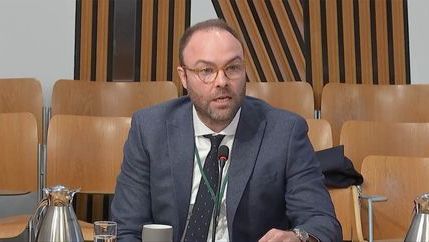
The coalition is represented by TC Young LLP and Bannatyne, Kirkwood, France & Co. In the petition, the three groups say they believe the law is disproportionate and unfair.
This is further exacerbated by the decision to retain the rent cap for the private rented sector and remove it for the social rented sector from 1 March 2023.
Key petition points
Specifically, the petition highlights:
- The rent cap applies irrespective of the financial position of both the tenant and landlord. This means tenants who are not financially vulnerable avoid a rent increase irrespective of the landlord’s financial position.
- The recent decision by the Scottish Government to remove the cap for social landlords means a well-off individual renting in the private sector is provided financial protection not available to someone in more challenging financial circumstances in the social sector.
- In the decision to remove the rent cap in the social sector, the Scottish Government acknowledges the need for maintenance of these properties but has not given the same consideration to landlords in the private sector.
- The law does not make any distinction or provide relief based on different circumstances of landlords, between larger, institutional companies who might be able to shoulder increased costs, and individual landlords who cannot.
- The eviction ban creates a delay in addressing matters such as arrears which adversely impacts landlord cash flow culminating in a reduction in capital value.
European Convention of Human Rights
The petition further argues that by discriminating in the way it does, the law breaches the European Convention of Human Rights which states “The enjoyment of the rights and freedoms set forth in the Convention shall be secured without discrimination on any ground such as … association with … property”
Campaigning for our members
Propertymark has been engaged fully in the development and implementation of the Cost of Living Act, representing members’ views every step of the way.
- September - following the announcement we pressed Scottish Government officials for actual details of when the legislation will come into force.
- October - Propertymark’s Head of Policy and Campaign gave evidence to the Scottish Parliament on the legislation.
- November – Fact Sheet provided to members on the details of the Cost-of-Living Act.
- December – Propertymark survey members and submit evidence to the Scottish Government as part of the legal requirement for the Scottish Government to report on the Act.
- January – Propertymark helps secure a relaxation of the current PRS rent cap restrictions which will take effect from 1 April 2023. Further concerns are raised in a meeting with the Minister.
Throughout the legislative process briefings have been sent to MSPs and following the Scottish Government’s Budget in December, Propertymark has written to the Deputy First Minister calling for an urgent review into all taxes affecting private landlords.
Propertymark also continues to push for the Scottish Government to establish a PRS Working Group as has been done for social rented sector providers.
Propertymark provides evidence on impact of Scottish letting legislation
Timothy Douglas, Propertymark's Head of Policy and Campaigns, has given evidence to the Local Government, Housing and Planning Committee of the Scottish Parliament warning of the impact of proposed legislation to limit rent increases and evictions on the supply of private rented property in Scotland.
Propertymark raises concerns about the PRS with Scottish Government
In a letter to Patrick Harvie MSP, following his appointment as Minister for Zero Carbon Buildings, Active Travel, and Tenants' Rights, Propertymark highlighted it is vital that the introduction of any legislation around the private rented sector (PRS) is based on evidence.
Housing Committee backs rent cap and eviction ban extension
Following evidence sessions with tenant representatives, sector organisations including Propertymark and Patrick Harvie MSP, the Minister for Zero Carbon Buildings, Active Travel and Tenants’ Rights, a majority of MSPs on the Scottish Parliament’s Local Government, Housing and Planning Committee voted to extend the rent cap and moratorium on evictions under the Cost-of-Living legislation to at least 30 September 2023.








